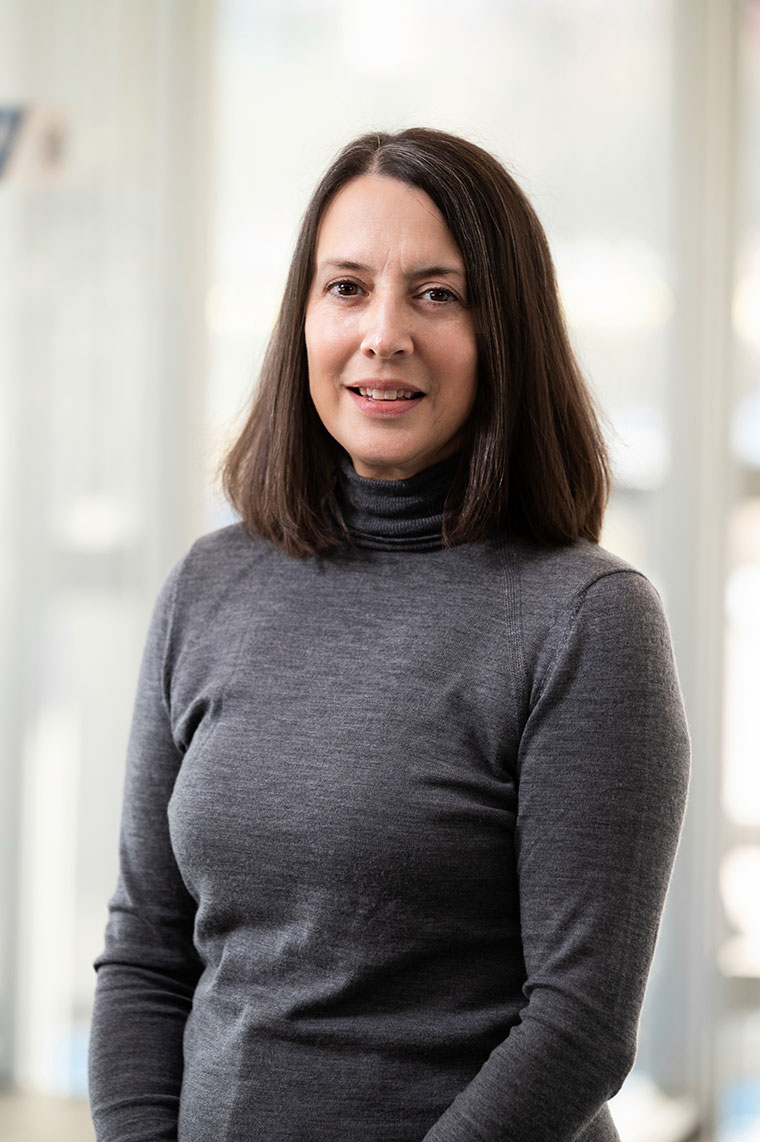Profile
Dr. Stephanie Perry
Miramichi, N.B.

What drew pediatrician Dr. Stephanie Perry into medicine was the ability to help others — a motivation that emerged from hearing stories from her grandmother, who was a nurse.
She says pediatrics offers a slower pace, and more time and personal connection with patients. “I find patients with complicated medical needs very inspiring, how they manage their disease, or their wheelchair, and of course the amazing parents I meet,” says Dr. Perry. “I enjoy educating and reassuring all my families, no matter what their situation, and to learn from them as well.”
After Dr. Perry settled into practice, she says she understood how important it was to create an open dialogue with patients. That conversation is at the centre of two perspectives: what a physician wants to accomplish in a visit and what a patient needs to discuss.
“Listening is therapeutic in itself as it opens a trusting relationship for both parties,” she says. “Patients come with answers they want to talk about, often having researched certain things on the web, and that is okay because it generates the dialogue that needs to happen.”
These are angles toward patient-centred care that she often explores with her students from both Dalhousie and Memorial universities.
In Miramichi, Dr. Perry says one of the biggest challenges she and her patients face is the lack of resources and long trips to see a specialist. She is focused as much on treating illness as on health promotion. Limited available support for mental health, social development, schoolwork and specialties like physiotherapy makes it harder for her families to get what they need.
For specialized care, Halifax is a four-hour drive away. Even for more routine tests, such as an EEG, it is an hour’s drive because there are no local technicians. “Some families don’t have cars, or the ability to take time off work or even pay for rising gas costs,” she says. “As a result, tests often don’t get done.”
When the pandemic struck, she noticed clear effects in her young patients — marked by “skyrocketing” anxiety in kids of all ages. She worries for everyone, from preschoolers to high school students, about the negative lingering impacts of COVID-19. “My heart breaks especially for teens, as the pandemic negatively impacted learning, social skills and moods.”
To make sure she provides the best care possible, Dr. Perry has long prioritized work-life balance for herself. Early in her career she decided to work part-time to guard against burnout, a subject that years later COVID-19 brought into the spotlight.
“I’ve been asked how I can only work part-time when there are people without a family doctor,” she says, acknowledging a pressurized atmosphere in New Brunswick. “Yet I could work all the hours, and it wouldn’t truly impact people’s access to family doctors.”
Dr. Perry has been a client of MD Financial Management (MD) since residency, and believes financial literacy and planning are critical to learn early — ideally in high school.
“Instead of calculus, why not teach financial literacy?” she posits. “If you know you are looking after your finances and your future, it is a tremendous stress relief. We shouldn’t learn basic personal finance in medical school, you should at that point be learning what's unique to our profession.”
She joined the MD Physician Council as a way to learn more about financial literacy and about one of her key passions: socially responsible investing.
“As a physician and pediatrician, I see how much harm smoking causes, so that’s where it started — investing in cigarette companies didn’t feel right,” she explains. “As a pediatrician, I tend to be very socially conscious, and my values are guided and reinforced by my exposure to patients and what I learn from them.”
Back to Physician CouncilMD Financial Management provides financial products and services, the MD Family of Funds and investment counselling services through the MD Group of Companies and Scotia Wealth Insurance Services Inc. For a detailed list of the MD Group of Companies visit md.ca and visit scotiawealthmanagement.com for more information on Scotia Wealth Insurance Services Inc.